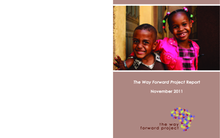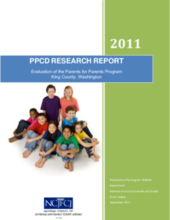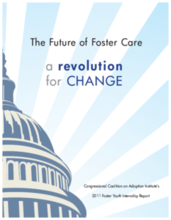Displaying 2091 - 2100 of 2176
This article is based on interviews with 19 child care policy experts including policy advocates, researchers, and funders.
Foster youth in the US do not appear to be receiving many forms of help that are called for in federal law. Over one-third did not receive help they would have liked to have received. System factors play a stronger role than individual indicators of need in help receipt. Independent living services should be more widely available and better targeted.
The Congressional Coalition on Adoption Institute’s The Way Forward Project brought together a group of international experts to discuss opportunities and challenges facing governmental and non-governmental organization leaders in six African nations (Ethiopia, Ghana, Kenya, Malawi, Rwanda, and Uganda) as they work to develop systems of care that serve children in and through their families.
This paper uses comparisons of child benefit packages in the European Union and Central and Eastern European and Confederation of Independent States (CEE/CIS) countries derived using model family methods.
Child care and early education policies may not only raise average achievement but may also be of special benefit for less advantaged children, in particular if programs are high quality. We test whether high quality child care is equalizing using rich longitudinal data from two comparison countries, Denmark and the United States.
A comparative analysis of child welfare systems in 10 countries identifies three broad functional orientations – child protection, family service and child development.
This study uses data from the 2005 National Household Education Survey to examine the effects of child care subsidies on the enrollment of low-income children in early childhood education programs.
This paper explores malnutrition among children in foster care in the U.S. and programs and interventions that help to improve the nutritional health of children in foster care.
This process evaluation of the King County Parents for Parents Program (P4P) examines the program’s efficacy and suggests areas for continued improvement.
Released by a group of former United States foster youth as a comprehensive report on the system in which they were raised, this report details the Congressional Coalition on Adoption Institute’s (CCAI) Foster Youth Internship (FYI) recommendations on improving hot-button issues ranging from immigration, education, mentoring, psychotropic drugs, child abuse and government accountability



